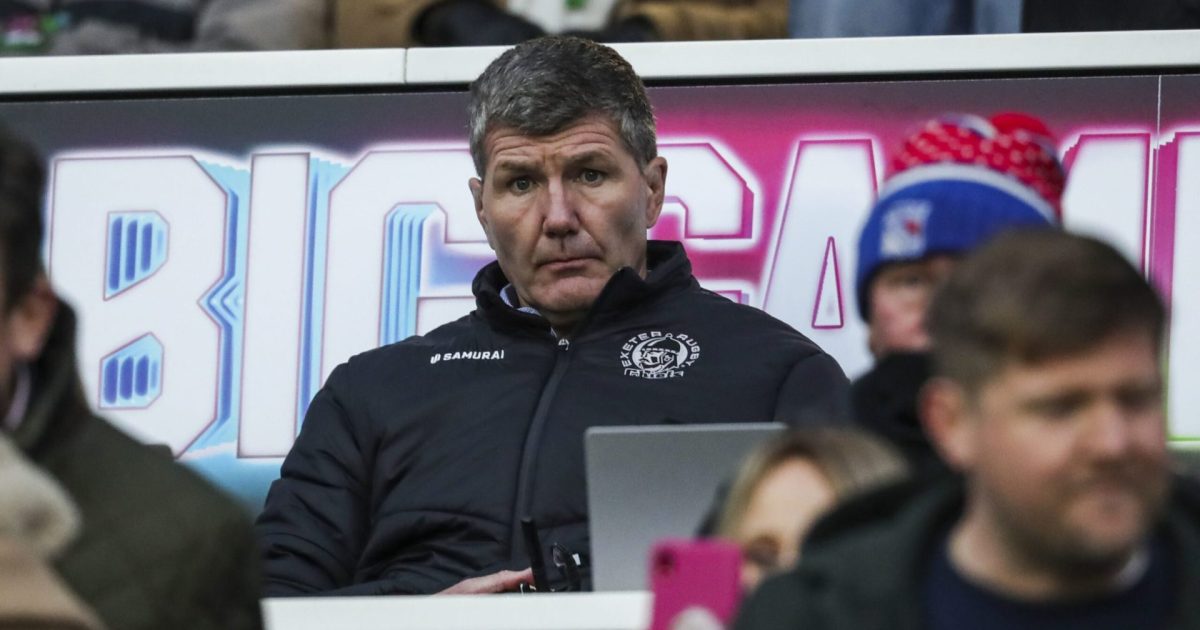'The truth is we've had to cut a lot of money off the wage bill'- Rob Baxter

Exeter Chiefs director of rugby Rob Baxter has called on fans to be patient as he rebuilds the team with a tighter budget.
Exeter are still in the fight for a playoff spot after dispatching Newcastle 24-5 on Saturday at Sandy Park, but Baxter has more than half an eye on next season.
Like many of their Premiership colleagues, Exeter face a tough challenge ahead of the next season, as they need to fit a packed roster into a reduced salary cap, cutting their wage bill from £6.4 million down to £5 million.
The squeeze is already starting to tell as contracts are negotiated, with several high-profile players, including Sam Simmonds, Harry Williams, and Luke Cowan-Dickie, already deciding to leave Devon for more lucrative deals in France.
Despite these setbacks, Baxter is remaining positive about the future of the team. He has acknowledged the need to rebuild the team with new talent and develop existing players to fill the gaps left by the departing stars. Baxter is urging Exeter fans to be patient as the team undergoes this rebuilding process, emphasizing the importance of long-term sustainability over short-term success.
“The truth is – and there is no secret to this – we’ve had to cut a lot of money off the wage bill,” explained Baxter, while announcing the signing of Georgian prop Nika Abuladze this weekend. “The reduction from the £6.4m to £5m, together with all the trimmings around credits for homegrown players, international players, marquee players, I think people will be surprised how much we have had to trim down as these contracts unwind.
“Most of them are unwound now, I think there are only two or three where they are still being discredited down to 75 per cent.
“I think if people genuinely stopped and realised what that means, they would probably have an understanding that we are looking at the squad in a slightly different way. We are trying to create a squad that can be competitive straightaway, which is very important for as a club.
“I genuinely believe the squad we are putting together will be, but it’s also going to be an exciting squad of young players with something to prove. Personally, I’m already looking forward to next season, but I’m actually looking forward to seeing what we achieve at the end of this season because it’s a great challenge for people. Now is the time for them to stand up and get on with it.”
It remains to be seen how the the Chiefs will fare in the upcoming season, but one thing is certain: the make-up of the team next year will be significantly different.





































































